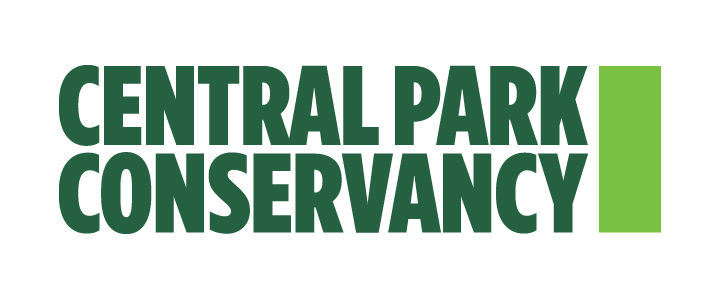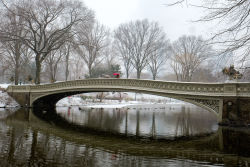Central Park
The Daily Plant : Tuesday, January 31, 2006
Please Don't Feed The Birds
For many New Yorkers, taking a moment to sit on a park bench, look out onto one of New York City’s many beautiful water bodies, and feed the birds is a relaxing daily ritual. Yet, most people have no idea of the damage that can be caused by feeding the wildlife in our parks. To dissuade park users from feeding the animals, the Central Park Conservancy and Parks & Recreation will this month begin an educational campaign.
"Feeding the wildlife not only harms the animals; it also hurts the park’s delicate environment," said Neil Calvanese, Central Park Conservancy’s Vice President for Operations.
He and his team often deal with issues stemming from visitors feeding the Canada geese in the Harlem Meer—a prime example of animals and their habitat being aversely affected by steady feedings from residents and tourists.
Because of the absence of natural predators, the Harlem Meer has become a popular destination for Canada geese. More and more of these geese are inhabiting the area because they have discovered that, in addition to the plentiful grass on the water banks, local residents provide ample extra food. The population has steadily risen from less than 30 geese five years ago to about 300 geese today.
Unfortunately, many residents don’t realize that feeding the geese a steady diet of human food, ranging from bread to potato chips, can result in unhealthy fowl. In large groups, the geese become aggressive with other birds, compete with them for food, and eventually force them to leave the Meer. The geese also eat all of the grass and plantings in the Meer’s surrounding landscape, and their droppings change the lake’s chemistry, producing algae blooms that rob the water of oxygen for fish and other wildlife.
Contrary to what many visitors and residents may think, we don’t need to worry about the geese having enough food. If humans don’t feed them, they will not starve; they will forage for food in other places, thus dispersing their environmental impact over a wider area.
"We know that one of the reasons New Yorkers love Central Park is because of the wildlife," said Calvanese. "The best way to ensure their mutually beneficial relationship with the park is by leaving them alone and observing them from a distance."
QUOTATION FOR THE DAY
"Life is not so bad if you have plenty of luck, a good physique, and
not too much imagination."
Christopher Isherwood
(1904-1986)
Check out your park's Vital Signs
Clean & Safe
Green & Resilient
Empowered & Engaged Users
Share your feedback or learn more about how this park is part of a
Vital Park System

Know Before You Go
Anticipated Completion: Spring 2024
Anticipated Completion: Spring 2025

Contacts
Central Park Information: (212) 310-6600
Central Park Information (for the Hearing Impaired): (800) 281-5722
Belvedere Castle, The Henry Luce Nature Observatory: (212) 772-0210
The Charles A. Dana Discovery Center: (212) 860-1370
The Dairy Visitor Center and Gift Shop: (212) 794-6564
North Meadow Recreation Center: (212) 348-4867
Loeb Boathouse (Bike rentals, boat rentals & gondolas): (212) 517-2233
Carousel: (212) 879-0244
Fishing at Harlem Meer (Catch & Release): (212) 860-1370
Harlem Meer Performance Festival: (212) 860-1370
Horseback Riding - Claremont Stables: (212) 724-5100
Metropolitan Opera (Performances on the Great Lawn): (212) 362-6000
New York Philharmonic (Performances on the Great Lawn): (212) 875-5709
Shakespeare in the Park - The Public Theater at the Delacorte Theater: (212) 539-8655
Central Park SummerStage: (212) 360-2777
Swedish Cottage Marionette Theater: (212) 988-9093
Tennis: (212) 280-0205
Weddings, Ceremonies and Photography at the Conservatory Garden: (212) 360-2766
Wildlife Center & Tisch Children's Zoo: (212) 439-6500











